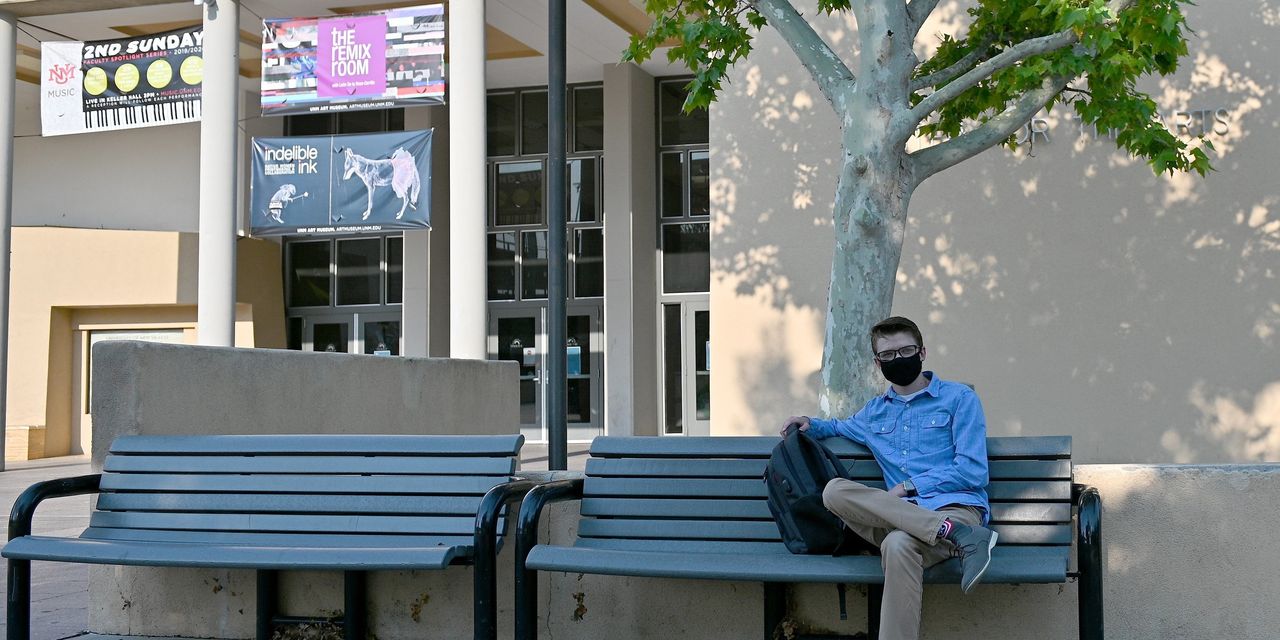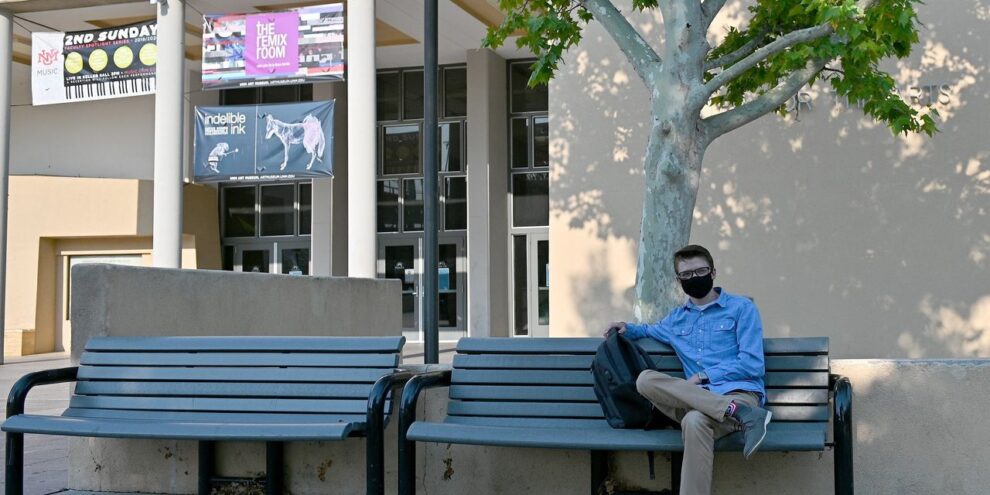
With COVID-19 upending higher education and people’s personal finances just as it has nearly every other facet of life, a new survey finds that almost half of college students believe the pandemic will damage their ability to finish their degree — with students of color even more likely to say so.
Some 49% of enrolled college students pursuing a bachelor’s degree say it’s either likely (32%) or very likely (17%) that the coronavirus crisis will negatively impact their ability to complete their degree or credential, according to a Gallup poll published Tuesday. Fifty-six percent of those getting their associate degree agreed.
Black (56%) and Hispanic (56%) college students getting a bachelor’s degree were more likely than their white counterparts (44%) to say the pandemic would pose a roadblock to their degree completion. Black and Hispanic associate-degree students (both 60%) were also more likely than white students (52%) to say the same.
“ ‘The collective challenges students face in the 2020-2021 academic year — financial hardship, health concerns, increased caregiving responsibilities — are both severe and complex, making their concerns about completing school understandable.’ ”
What’s more, “bachelor’s degree students who are most likely to say COVID-19 will negatively impact their ability to complete their degree have a weaker support system” of friends or family to lean on for help, the Gallup report found.
And many college students remain unaware of potential school-provided services such as emergency financial help, food assistance, mental-health services and academic support, which could theoretically help keep them on track with their degree.
“The economic impacts of the pandemic have been devastating for students and their families, with many worried about how a loss of job or income may affect their ability to stay enrolled or change how they finance their degree,” wrote Stephanie Marken, Gallup’s executive director of education research.
“The collective challenges students face in the 2020-2021 academic year — financial hardship, health concerns, increased caregiving responsibilities — are both severe and complex, making their concerns about completing school understandable.”
The survey, conducted Sept. 22 to Oct. 5, included responses from 3,941 bachelor’s-degree students and 2,064 associate-degree students.
College students have told MarketWatch they’re bulking up on classes in a race to graduate in May, taking time off to save money, and growing fatigued from online classes.
Separate findings in August from USC Dornsife’s ongoing Understanding Coronavirus in America study pointed to a similar differential impact on college students of color, with almost 30% of Asian Americans students, nearly 25% of Latino students and 7% of Black students saying they expected to take fewer classes in the fall due to COVID-19, compared to 3% of white students.
“Reducing one’s course load makes it more likely that you will not complete, that it will take you longer to complete if you do, that you have to take out more student loan debt because of the extended time to degree, etc.,” Dominique Baker, an assistant professor of education policy at Southern Methodist University, said in a news release, referring to college credentials.
“Students of color are balancing additional responsibilities beyond school that will not allow them to focus on their coursework the way their peers may be able to,” Baker added.






